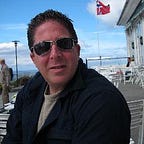Nobel Economist Finds Stunning Student Gains in Standardized-Instruction Model Used Abroad
Serious education research rarely shows big effects. That’s why results are celebrated so enthusiastically when credible research shows that some intervention seems to boost learning even modestly, say by adding a month or two worth of learning over the course of a school year.
This all makes the recent “gold standard” randomized control trial (RCT) study of NewGlobe-operated schools in Kenya, led by Nobel laureate economist Michael Kremer, especially intriguing. Kremer and his team studied 10,000 students for two years and found that attending NewGlobe schools doubled student learning so that students gained nearly two years of learning in the course of a single school year. And the jump was even more significant in early childhood and for students from lower-income families.
The randomized design means that the students who won the lottery to attend NewGlobe were otherwise an apples-to-apples comparison with those who didn’t. (For readers who aren’t research junkies, this is the same kind of design that medical researchers use to vet vaccines or new drugs.) And some of the results were pretty remarkable. While the World Bank reports that 90 percent of 10-year-olds in Sub-Saharan Africa can’t read, for instance, the researchers found that 82 percent of NewGlobe students in grade 1 were able to read a sentence. The comparative figure for the control group was 27 percent.
What to make of these results? Well, the findings get even more intriguing if we dig a bit deeper into what NewGlobe does in Kenya, where they manage schools serving about 45,000 students throughout the country.
NewGlobe, a for-profit venture founded in 2007, employs a highly standardized model of teaching and learning to serve more than a million students across six developing countries. Teachers work from tablets and are given highly specific instructional scripts. Indeed, the tablets provide teachers with clear direction as to when to cold call students, what to write on the board, when to teach a given lesson, and even how to pass classroom materials. Teachers also carefully track data, including which students answer which questions and student attendance, under the regular supervision of “learning” and “development officers.” NewGlobe’s software uses the data to update the scripts on a regular basis. If, for instance, students can consistently answer a given question, it will be “retired.”
In NewGlobe’s Kenya schools, decisions regarding school management, infrastructure, and finances are also highly standardized. School leaders are given a list of questions they must answer when deciding whether to make a purchase and employ a unified payment system to process salaries, parent fees, and supply purchases. Similarly, all schools supported by NewGlobe are identically designed and built. For example, there are large windows built beside each classroom’s door to facilitate observation.
The remarkable results and tightly engineered instructional model combine to plop us right back into some familiar, emotional debates about the merits of direct instruction and the kinds of techniques popularized in Doug Lemov’s Teach Like a Champion. At least at these schools in Kenya, there’s pretty compelling evidence that those practices are working, where (the researchers note) most teachers are new and lack training. I can imagine my colleague Robert Pondiscio, for instance, arguing that, of course, you get better results from these teachers when you make their job clearer and less overwhelming. At the same time, I suspect many readers share my queasy feelings about the uniformity of all this and the role of Big Brotheresque “development officers.”
There’s a lot to chew on here, including the sheer size of these learning gains and what they may say about the merits of instructional standardization, the role of for-profits and school choice, and the degree to which the results might prove replicable in other school environs. As always, top-shelf research is as much about both generating important questions and providing answers. By that standard, Kremer and his colleagues have certainly delivered.
This post originally appeared on Rick Hess Straight Up.
